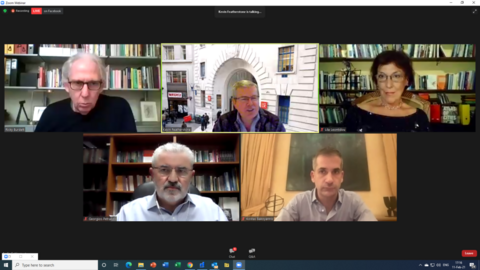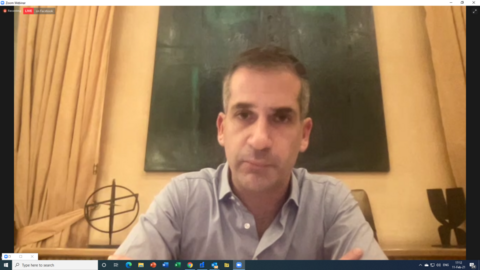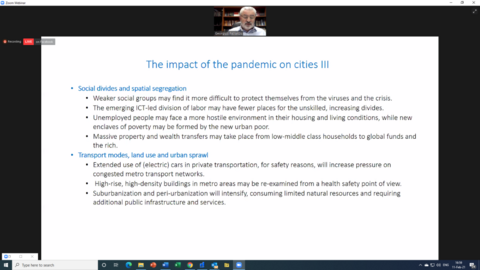Tomorrow shaping Cities in an Urban Age

As cities struggle with the combined pressures of a killer disease and economic stress, the impacts of urban form on well-being, inequality and resilience are brought into even sharper focus. Using research from LSE’s global Urban Age programme – including new research on Athens – the illustrated webinar lecture reviewed how urban planning, governance and design are critical to shaping urban lives in the 21st century.
A very interesting panel discussion touching upon the impact of the pandemic on shaping cities of the future, with an emphasis on the challenges faced by Athens included speaker Ricky Burdett, Professor of Urban Studies, LSE; Director of LSE Cities and discussants Kostas Bakoyannis, Mayor of Athens, Lila Leontidou, Professor Emerita of Geography & European Culture, Hellenic Open University and George Petrakos, Economist; Professor at the Department of Planning & Regional Development, University of Thessaly.
The event and panel were chaired by Kevin Featherstone, Eleftherios Venizelos Professor in Contemporary Greek Studies and Professor in European Politics; Director of the Hellenic Observatory.

The value of public spaces has increased dramatically as the only outlet to ensure the physical/mental health of citizens.
It is essential that the public sector must regulate town planning and not cave in to land developers market plans.
Talking about Greece, it was pointed out that the city of Athens has seen a drop of over 11% in the population since 2000 whilst travel inside the town is still carried out by car over 72% of the time.

Public spaces close to deprived areas are available as long as there is the political to develop them and ensure they are democratically accessible.
Environmentally friendly Public transport needs to be focused on whilst the pandemic effect in many cities will provide flexible work hours/work practices so to flatten peak time pressures.
High city area population density can be both a weakness and an advantage. The model of work, live and play within a 15 minute radius which has been proposed by the Paris mayor, is a fascinating template for future city development.
*This event also forms part of LSE’s Shaping the Post-COVID World initiative, a series of debates about the direction the world could and should be taking after the crisis and of the LSE Athens Urban Age Task Force, organised by LSE Cities and the Alfred Herrhausen Gesellschaft.
N.B. We are indebted to Dimtris N. Monioudis, president of the HESGB for his support.
The next event:
| The Invisible Impact of Frozen Conflicts: a case study of foreign domestic workers in Cyprus Tuesday 16 February 2021, 16:00-17:30 (UK Time)/ 18:00-19:30 (GR Time) |





